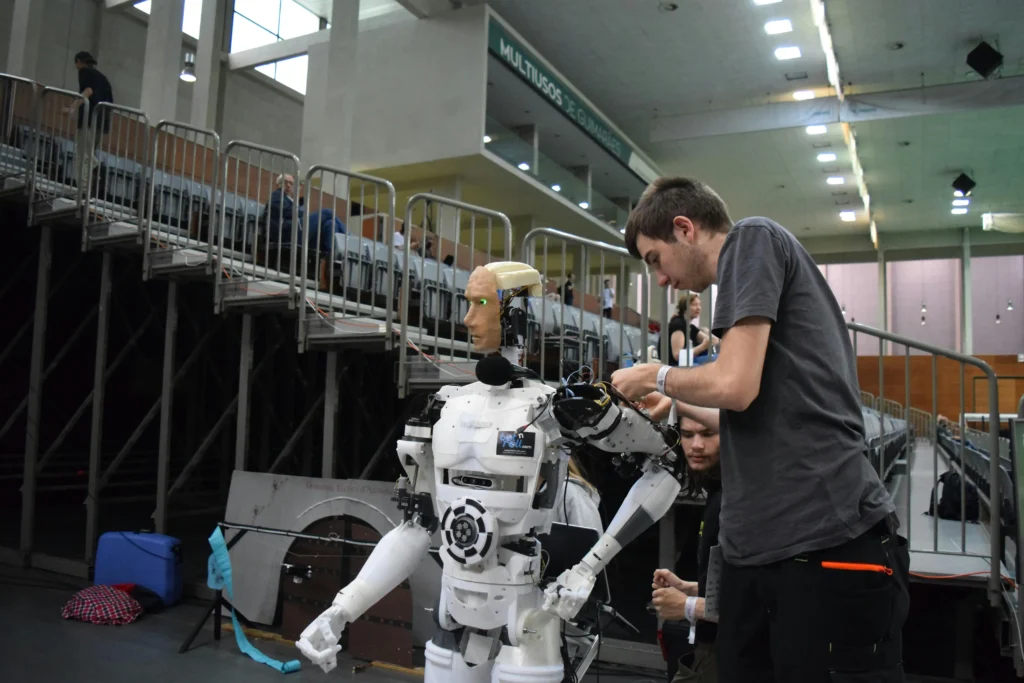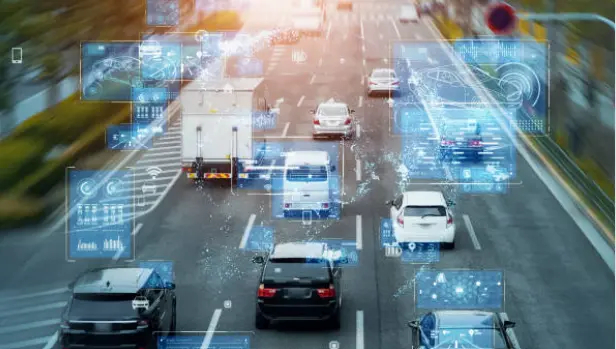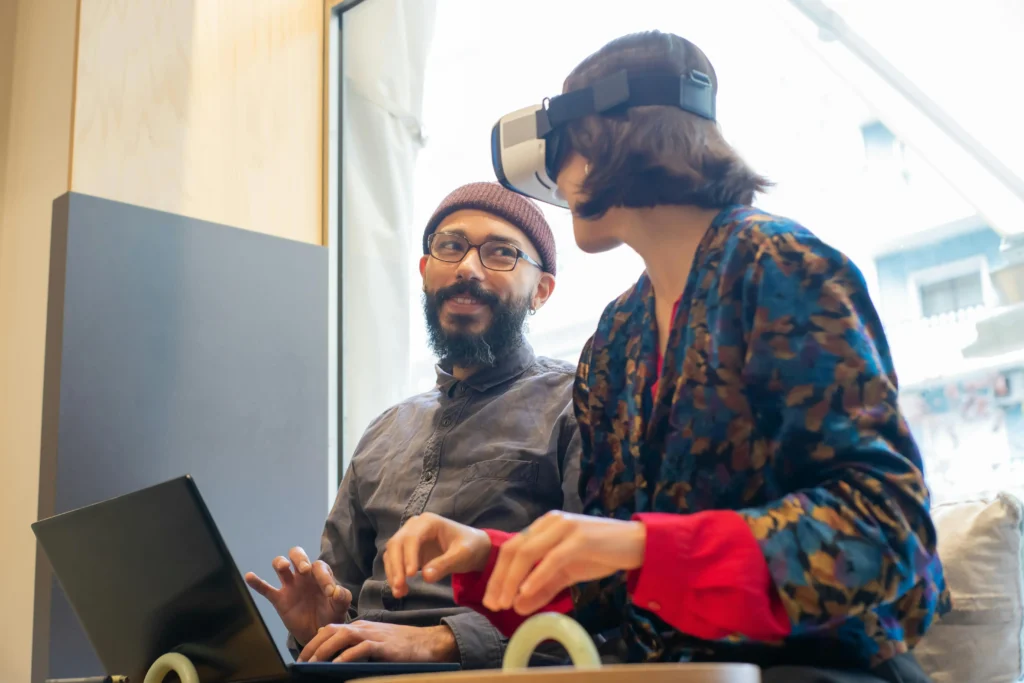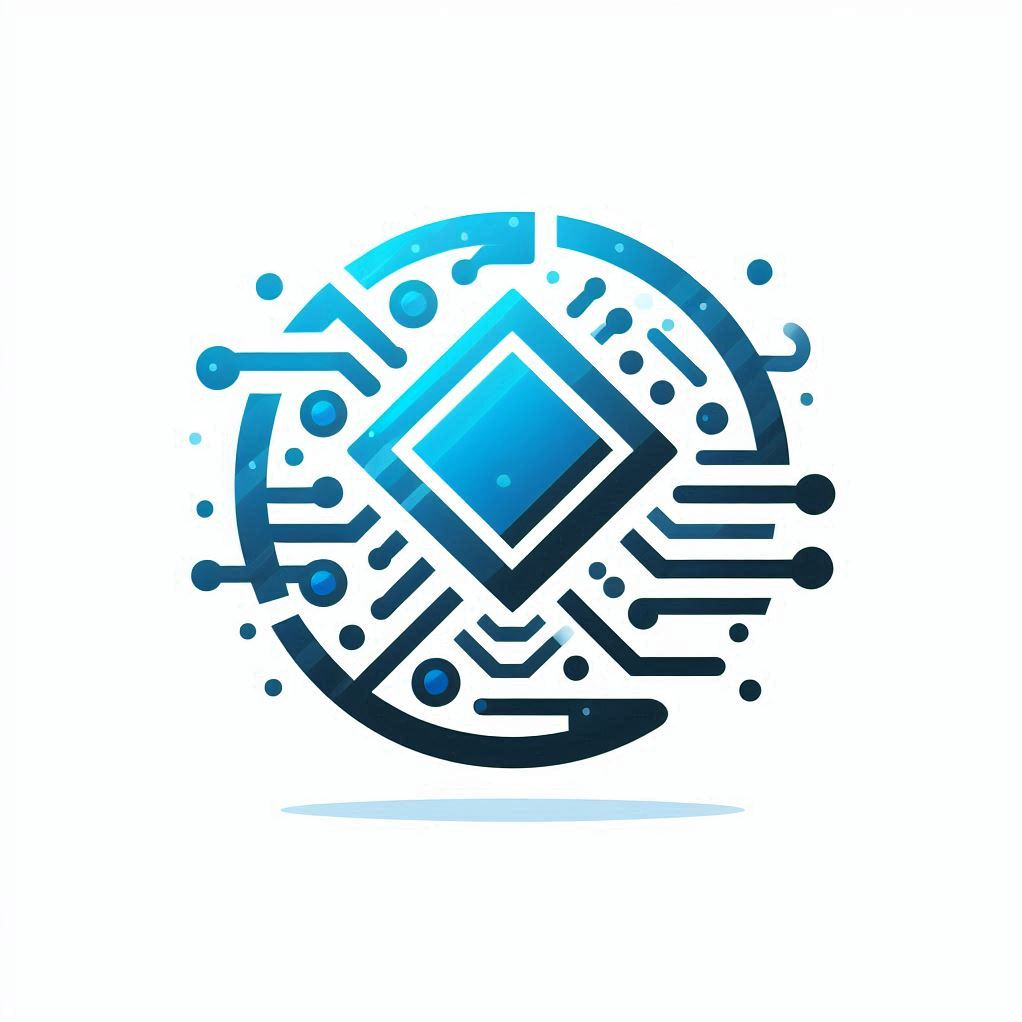Introduction:
The Future of AI (Artificial Intelligence) is no longer a concept confined to science fiction; it is a transformative force reshaping industries and daily life. With rapid advancements in technology, AI’s potential seems limitless. From revolutionizing healthcare with precise diagnostics and personalized treatments to enhancing transportation through autonomous vehicles and smart traffic management, AI is poised to bring unprecedented changes.
The Future of AI in Finance

Fraud Detection
- Real-Time Monitoring: AI systems can monitor transactions in real-time, identifying and flagging suspicious activities.
- Pattern Recognition: Machine learning algorithms detect unusual patterns that may indicate fraudulent behavior.
Algorithmic Trading
- Speed and Efficiency: AI algorithms execute trades at speeds impossible for humans, optimizing investment strategies.
- Market Predictions: Predictive models analyze market trends, providing insights that guide investment decisions.
The Future of AI in Healthcare

Personalized Medicine
- Genomic Data Analysis: AI can analyze large datasets of genetic information to tailor treatments to individual patients.
- Predictive Analytics: Machine learning models predict disease outbreaks and patient outcomes, allowing for proactive healthcare measures.
Robotic Surgery
- Precision and Accuracy: Robots enhance the precision of surgical procedures, reducing recovery times and improving patient outcomes.
- Minimally Invasive Techniques: AI-powered robots enable minimally invasive surgeries, leading to fewer complications and shorter hospital stays.
The Future of AI in Education

Personalized Learning
- Adaptive Learning Systems: AI tailors educational content to the needs and pace of individual students.
- Learning Analytics: Data-driven insights help educators understand student performance and areas needing improvement.
Virtual Classrooms
- Remote Learning: AI-powered platforms facilitate online learning, making education accessible to a wider audience.
- Interactive Learning Experiences: AI creates immersive and interactive learning environments, enhancing student engagement.
The Future of AI in Transportation

Autonomous Vehicles
- Safety Improvements: AI reduces human error, which is a leading cause of accidents, thereby enhancing road safety.
- Efficiency and Convenience: Self-driving cars optimize routes and reduce traffic congestion, improving overall travel efficiency.
Smart Traffic Management
- Traffic Flow Optimization: AI systems adjust traffic signals in real-time to minimize congestion.
- Public Transportation Enhancements: AI analyzes patterns to improve public transport schedules and routes, making them more efficient.
The Future of AI in Entertainment

Content Creation
- Automated Storytelling: AI can generate scripts, music, and other forms of content, expanding creative possibilities.
- Personalized Recommendations: AI algorithms analyze user preferences to suggest movies, music, and shows, enhancing user experience.
Virtual Reality (VR) and Augmented Reality (AR)
- Enhanced Immersion: AI powers VR and AR experiences, making them more realistic and engaging.
- Interactive Gaming: AI-driven characters and environments provide more dynamic and responsive gaming experiences.
Marketing and Audience Analytics
- Predictive Analytics: AI analyzes data from social media, streaming platforms, and other sources to predict trends and audience preferences.
- Example: Studios use AI to predict the success of movies based on pre-release audience reactions and social media sentiment analysis.
- Targeted Advertising: AI enables more precise targeting of advertisements based on user data, ensuring that marketing efforts reach the most relevant audiences.
- Example: Personalized ad campaigns on streaming platforms that align with users’ viewing habits and preferences.
Ethical and Social Implications of AI

Ethical Concerns
- Bias and Fairness: Ensuring AI systems are free from biases that can lead to unfair treatment of individuals.
- Privacy Issues: Balancing the benefits of AI with the need to protect user data and privacy.
Job Displacement
- Economic Impact: Assessing how AI will affect job markets and the economy, and developing strategies to mitigate negative effects.
- Reskilling and Education: Preparing the workforce for the AI-driven future through education and reskilling programs.
